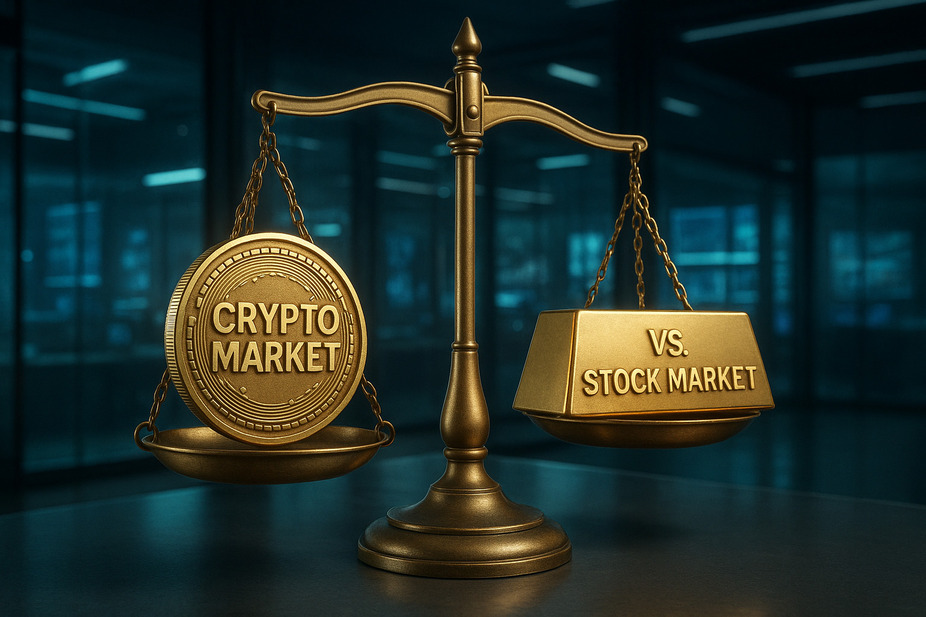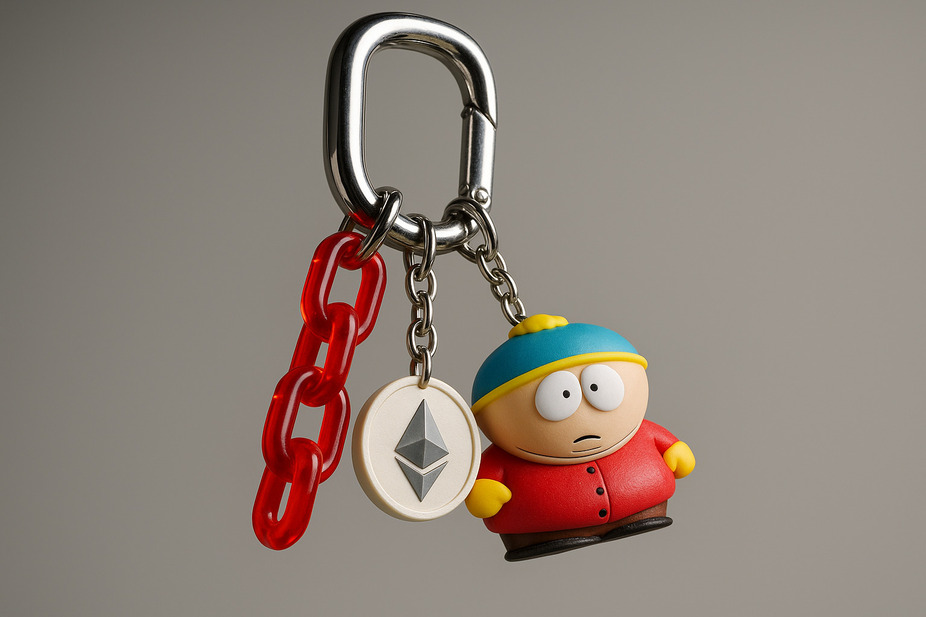Crypto market vs. stock market: key differences

The debate over crypto vs stocks has become increasingly relevant as both markets attract new waves of investors. While both offer opportunities for growth and diversification, they differ significantly in structure, risk, regulation, and accessibility. Whether you’re a beginner or an experienced trader, understanding the difference between stocks and crypto is essential for building a smart, diversified portfolio.
Market structure
The cryptocurrency market is decentralized. It operates on blockchain-based networks without a central authority. Assets are digital tokens traded on crypto exchanges like Binance, Coinbase, or Kraken. Anyone with an internet connection and a wallet can access the crypto market, often without the need for identity verification.
In contrast, the stock market is highly centralized and regulated. Companies must go through rigorous listing processes to offer shares to the public. Trades occur through registered exchanges like the NYSE or NASDAQ, with brokers acting as intermediaries. Ownership of shares is legally recognized and represents a stake in a real company.
These structural differences affect how quickly trades settle, the level of transparency, and the barriers to entry in stock market vs cryptocurrency environments.
Volatility and risk
When comparing crypto market vs stock market volatility, cryptocurrencies are generally far more unstable. Digital assets can experience double-digit price swings within hours, driven by speculation, low liquidity, and market sentiment. This high volatility creates both opportunity and significant risk, particularly for short-term traders.
Stocks are also subject to price fluctuations, but typically within more stable ranges. Stock prices are influenced by company earnings, market cycles, and broader economic indicators. Risks of stock trading include recession impact, inflation, and poor corporate performance, but with more historical data and institutional support, the stock market is seen as relatively more predictable.
Investors choosing between investing in crypto vs stocks must consider their risk tolerance and the time they are willing to dedicate to monitoring their investments.
Trading hours and accessibility
One of the major differences in crypto trading vs stock trading is availability. The crypto market operates 24/7, including weekends and holidays. This constant activity appeals to global investors and allows flexible trading strategies, especially in volatile conditions.
The stock market, on the other hand, functions during fixed hours, typically 9:30 AM to 4:00 PM EST on weekdays. Some brokers offer pre-market and after-hours trading, but liquidity is usually lower outside standard times.
Accessibility also varies. In the crypto market, all you need is a wallet and internet access. In contrast, investing in stocks requires opening a brokerage account, complying with regulations, and sometimes paying higher fees. These differences impact who can invest, when, and how easily.
Investment strategies
Traditionally, stocks are viewed as safer long-term investments. Investors rely on dividends, compound growth, and established historical performance. Holding diversified portfolios of stocks is common in retirement plans and institutional investment.
Cryptocurrency investing often attracts short-term traders who aim to profit from price movements. Strategies include day trading, scalping, or swing trading, though some long-term holders (“HODLers”) accumulate major coins like Bitcoin and Ethereum with a long-term approach.
Here are strategic differences at a glance:
- stocks — long-term value, dividends, fundamental analysis, sector diversification;
- crypto — volatility-based gains, token utility, on-chain analysis, early-stage project exposure.
Combining both can be effective. Many now diversify with stocks and crypto to balance risk and return potential.
Technological and security aspects
Crypto assets are powered by blockchain technology, which ensures transparency, decentralization, and immutability. Transactions are verified by a global network, and assets are stored in digital wallets. However, this also introduces risks such as hacking, phishing, and wallet theft, especially for users who do not follow proper security practices.
The stock market relies on traditional financial infrastructure. While not as decentralized, it has strong investor protections and security protocols. Brokerage accounts are typically insured, and platforms must comply with strict data security standards.
Although both markets face cybersecurity threats, crypto investors are generally more responsible for self-custody, while stock investors rely more on third-party institutions for safekeeping.
Regulatory and legal considerations
Regulation in cryptocurrency remains a gray area in many countries. Governments are still defining how to classify and tax digital assets. While some nations have embraced crypto-friendly policies, others have imposed restrictions or outright bans. This lack of clarity introduces additional risk for crypto investors.
In contrast, the stock market is tightly regulated. Institutions like the SEC in the U.S. enforce strict disclosure rules, fraud protection, and corporate governance requirements. For many investors, this creates a sense of trust and predictability.
The impact of regulation in both markets is significant. Crypto may offer greater freedom, but it also comes with less oversight and fewer legal protections.
Conclusion: summary of key differences
When evaluating investing in stocks or crypto, it’s important to understand how each market operates and what it demands of you as an investor.
Key differences include:
- stocks are centralized and regulated; crypto is decentralized and global;
- crypto is more volatile and risky; stocks are more stable but slower-growing;
- crypto trades 24/7 and is borderless; stocks trade on fixed schedules with regional limits;
- stock investments are broker-protected; crypto requires personal responsibility;
- stock market is fully regulated; crypto operates in a rapidly evolving legal space.
Ultimately, there’s no one-size-fits-all answer. Stocks, like ironwallet.io, for beginners, depend on your goals, timeline, and comfort with technology and risk. Many investors choose to participate in both, leveraging the long-term reliability of the stock market with the high-growth potential of cryptocurrencies.












